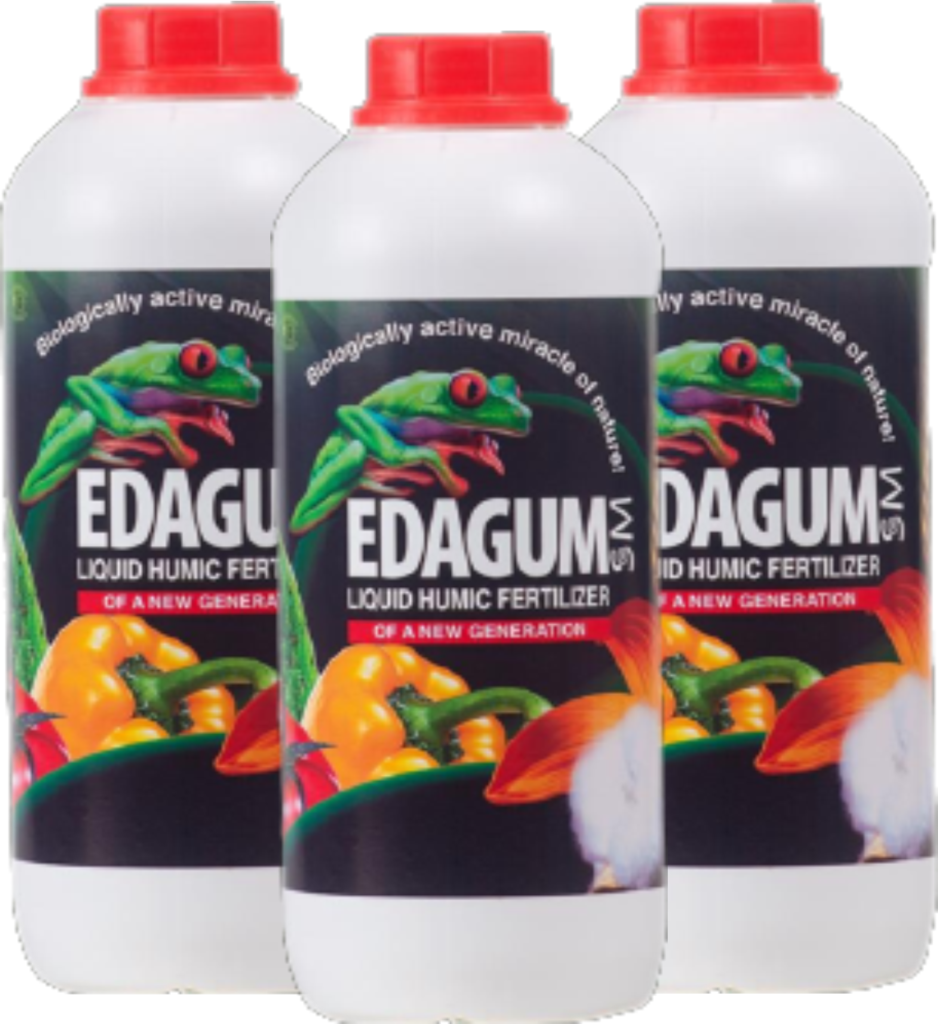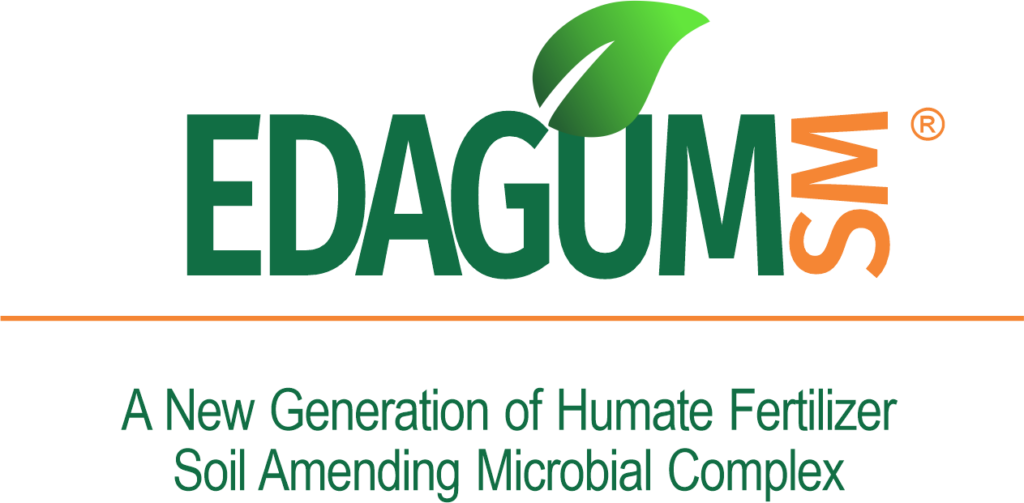
Biologically Active Liquid Humate Solution
EDAGUM SM
A New Generation of Humate Fertilizer / Soil Amending Complex
Soil regeneration is the process of improving the quality of your soil by adding organic matter, which
helps to improve drainage, water retention, and nutrition for your plants. Soil regeneration farming
involves returning nutrients and organic matter to the soil to restore the soil’s fertility and productivity.
This sounds simple and often times it is, however in today’s modern agricultural methods it can still be
a challenge. EDAGUM SM is making this process easier and more manageable. The humic and
organic ingredients in EDAGUM SM speed this process and can accelerate the regenerative process.
The best part is that EDAGUM is has a low input cost and is easy to apply. By adding it to your early
season and post harvest applications the soil regeneration process can greatly enhanced.
EDAGUM®SМ is made on the basis that the environmentally sound knowledge of biologically active
substances from low-land peat is beneficial to plant nutrition and soil fertilization. Due to its unique
composition and production process EDAGUM®SM benefits all soils and plants regardless of where or
how they are grown.
EDAGUM®SM stimulates the biochemical processes and reactions in soils, increases plant immunity,
and promotes the acceleration of the humification processes in soils.
EDAGUM®SM is appropriate for all kinds of agricultural crops and can be used on any soil type!
Application is recommended at all plant growth stages – from seed treatment, pre-planting and during
vegetating stage including soil treatment after harvesting. It also can be applied in organic agriculture.
• Activates humification processes in soil
• Mobilizes plant unavailable phosphorus
• Improvement of water-holding capacity of soil
• Stimulates the activity of soil microflora (microbiome)
• Helps the sequestration of toxic heavy metals
The many benefits of regenerating soil
Improving soil health regenerative agriculture practices build soil health by enhancing biological activity in soils, increasing microbial populations that improve nutrient cycling, supporting beneficial organisms that protect crops from pests and disease, and increasing carbon sequestration.
Some of the many benefits include:
Improved water retention
Soil that has been regenerated will have better water retention capacity than depleted soils because it contains more organic matter which helps retain moisture in the soil.
Reduced fertilizer use
Regenerated soils require less fertilizer for optimum performance compared with depleted ones because they contain all the nutrients needed for plant growth without additional applications.
Increased productivity
Regenerated soils have more nutrients and minerals than depleted soils. This means that crops can grow better and produce more yields than those grown in depleted soils.
Increased crop yield and quality
Regenerated soils have greater water holding capacity than tilled soils and have a higher nutrient content. The latter means that you can grow more food on less land, which reduces the need for fertilizers and other chemicals. Regenerated soils have more nutrients and minerals than depleted soils. Crops can grow more efficiently, produce more yield. Regenerated soil also has a higher pH (a measure of acidity or alkalinity), which means that plants can absorb more nutrients from it. This leads to more nutritious crops, which makes them healthier for people to eat too.
CropSIL SPECIMEN
Download PDF
EDAGUM SPECIMEN
Download PDF
Provia AP21 Specimen
Download PDF
GENUS MC8 SPECIMEN
Download PDF

